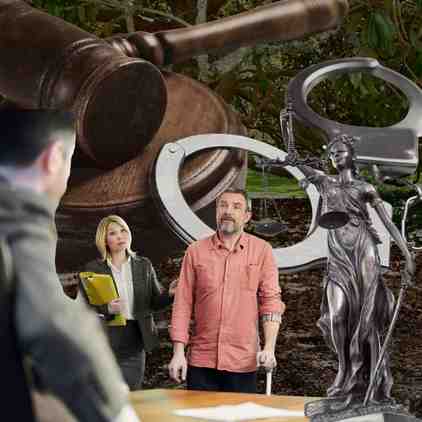
Our expert legal services provide comprehensive support for copyright registration in Pakistan. With the guidance of a skilled copyright lawyer, we ensure your creative works are properly protected under copyright law. From application preparation to filing, we handle the entire process efficiently, safeguarding your intellectual property rights.

We provide comprehensive legal services for copyright registration in Pakistan. Our team of skilled copyright lawyers is dedicated to helping creators, artists, authors, and businesses protect their original works through the formal copyright registration process. Whether your work is literary, artistic, musical, or digital, we ensure that it is protected under Pakistan’s copyright laws, granting you exclusive rights to your creation.
Copyright registration is a crucial step in protecting your intellectual property. By registering your work with the Copyright Office of Pakistan, you secure exclusive rights to reproduce, distribute, and adapt your creation.
Additionally, registered copyrights provide a legal framework to enforce your rights. If infringement occurs, you can take legal action to stop the unauthorized use of your work and seek compensation. Without registration, it may be difficult to prove ownership or enforce your rights in case of a dispute.
The Copyright Registration Service covers a wide range of creative works, including but not limited to:
In Pakistan, the duration of copyright protection varies based on the type of work. The Copyright Ordinance, 1962 outlines the timeframes for different categories. Below is a summary of the copyright duration for various works:
For guidance on copyright protection and how it applies to your specific work, consult with a copyright lawyer to ensure you understand and protect your intellectual property rights.
In Pakistan, if a copyright infringement occurs, the registered copyright holder has the right to take legal action. A copyright lawyer can guide you through two main types of legal actions: civil litigation and criminal litigation.
The copyright holder can file a civil lawsuit to seek remedies for infringement, such as:
A copyright lawyer helps initiate these actions to protect your work and seek compensation.
For large-scale piracy or deliberate infringement, criminal charges can be filed under the Copyright Ordinance, 1962. This can result in:
A copyright lawyer can help pursue criminal charges when the infringement is severe.
The Pakistan Copyright Office provides valuable support to copyright holders by:
Consult with an experienced copyright lawyer to effectively enforce your rights and seek proper legal action for any infringement.
Registering your copyright in Pakistan offers several advantages to protect your creative work. With the help of a copyright lawyer, you can secure these benefits:
Legal Protection
Copyright registration grants you exclusive legal rights, enabling you to take action in court if your intellectual property is infringed upon.
Branding and Market Presence
Copyright helps establish your work as a unique and protected asset, boosting your brand identity in the marketplace.
Global Protection
Your copyright protection extends internationally through treaties like the Berne Convention, providing global security for your work.
Prevents Unauthorized Use
Copyright restricts others from using, reproducing, or distributing your work without your consent, safeguarding your intellectual property.
Intangible Asset Creation
Your original work becomes an intangible asset that can be monetized, offering financial benefits over time.
Lifetime + 50 Years Protection
Copyright lasts for the author’s lifetime, plus 50 years after death, ensuring long-term protection for your creations.
Credibility and Reputation
Registering your copyright enhances your reputation in the marketplace, establishing you as a credible creator.
Uniqueness and Identity
Copyright solidifies your identity as a creator, artist, or business, distinguishing you from others.
Brand Control
By securing copyright, you maintain full control over how your work is used, ensuring consistency and preventing unauthorized alterations.
Protection Against Theft and Piracy
Copyright reduces the risk of theft and piracy, giving you peace of mind about your intellectual property.
Consult with a copyright lawyer to ensure you fully benefit from these advantages and protect your creative work.
If you have created a work that you wish to protect, don’t wait contact us today to begin the copyright registration process. Furthermore our skilled copyright lawyers are here to assist you and ensure that your intellectual property is fully protected, giving you the legal security to use, license, and enforce your rights. Let us help you protect your creative endeavors and maximize their potential value.
Key Information You Should Know

Answer: A copyright lawyer can guide you through the registration process, ensure all required documentation is complete, handle any disputes or infringements, and provide ongoing legal protection for your rights.
Answer: You can register a copyright for a work created by someone else if you are the legal owner or have permission to do so. A copyright lawyer can help in such cases.
Answer: Yes, copyright can be transferred or assigned to another party. This should be done in writing, and a copyright lawyer can assist in drafting the proper agreements.
Answer: The cost varies depending on the type of work and the specific filing requirements. A copyright lawyer can provide a detailed breakdown of the fees.
Answer: No, copyright protection is automatic once the work is created and fixed in a tangible form. However, registration provides additional legal benefits, including the ability to take action in court.
Answer: If your copyright is infringed upon, you can take legal action in court, including seeking damages, injunctions, and other remedies. A copyright lawyer can guide you through the enforcement
Answer: Copyright protection lasts for the lifetime of the author plus 50 years after their death for literary, artistic, and musical works. For films and sound recordings, it lasts 50 years from the date of publication.
“Ahmed Ali Dewan & Co. is a trusted law firm specializing in intellectual property, criminal law, family law, and corporate law. We provide expert legal services tailored to your needs, offering professional guidance in complex legal matters. Contact us today”